- RSIS
- Research
- Institute of Defence and Strategic Studies
- Centre Resources
- Humanitarian Futures Forum
Today, the humanitarian system is under immense strain. Traditional sources of funding are shrinking as donor countries divert resources to domestic priorities and rising defence expenditures, prompted by ongoing conflicts such as the war in Ukraine and the humanitarian catastrophe in Gaza. The closure or scaling back of major aid agencies, notably including the closure of USAID, underscores the fragility of current humanitarian financing models, highlighting longer institutional histories. Crises in the next decade and the longer future are also predicted to grow significantly in magnitude and frequency, aggravated by climatic, technological, socio-economic and geopolitical factors at regional and global levels.
The Indo-Pacific, like other regions around the world, is increasingly exposed to compounding risks—rising sea levels, extreme weather, food insecurity, cyber threats, misinformation, and large-scale displacement—affecting multiple countries. These risks are further compounded by eroding public trust in multilateral institutions. Moreover, local and regional actors are being asked to shoulder more responsibility with fewer traditional resources and uncertain support. Therefore, the need for actors in the region, particularly those with humanitarian roles and responsibilities, to prepare for future complex crises is clear.
In this fragile global environment, the need for anticipatory, adaptive, and collaborative approaches to humanitarian assistance and disaster response has never been more urgent. Particularly, the willingness for actors involved in humanitarian action—government, military, civil society, the private sector, philanthropic entities, academic and scientific institutions, media and international organisations— to adapt to these approaches are key. Apart from addressing immediate humanitarian concerns and drawing lessons from experience, humanitarian futures calls for an anticipatory and adaptive approach to preparing for future scenarios.
In line with this call, the Humanitarian Futures Forum 2025 aims to strengthen regional preparedness and resilience through inclusive dialogue and knowledge-sharing. Hosted by the Humanitarian Assistance and Disaster Relief (HADR) Programme at the Institute for Defence and Strategic Studies (IDSS), RSIS, and the Changi Regional HADR Coordination Centre (RHCC), the Forum will serve as a key platform for engagement on humanitarian crises. Held on 27 October 2025, the Forum will feature a keynote address and three interactive panel sessions. Each panel session will have 4 – 5 speakers drawn from diverse sectors and geographies to discuss 3 thematic areas. Panel 1 will explore The Future of Digital Humanitarianism: Balancing Impact, Sustainability, and Resilience. Panel 2 will discuss the role of Dilemmas and Trends in the Emerging Humanitarian Landscape. Panel 3 focuses on Frontiers in Civil-Military Partnerships in Disasters.
The successor to a series of events focused on humanitarian futures held during the COVID-19 pandemic, the 4th Humanitarian Futures Forum brings together local and overseas participants from the military, government agencies, think tanks and academia, private sector, philanthropy, local civil society, regional organisations, International NGOs and International Organisations, and media. The forum aims to facilitate the participating organisations to review their experiences in humanitarian settings, share perspectives and offers an avenue to interact with the wider humanitarian community. It seeks to inform humanitarian preparedness, planning and response to crises in our immediate and long-term future. At a time when global systems are stretched and future crises loom large, this gathering provides an essential space for collective reflection, strategic thinking, regional solidarity and exploring partnerships in the face of shared challenges.
CLICK HERE TO VIEW HUMANITARIAN FUTURES FORUM 2025 PHOTO GALLERY.
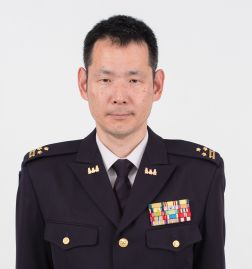
Col Arai was born in 1979, Saitama, Japan. In 2011, he attended the Command and Staff Course at the Staff College in Tokyo. He was appointed as a trainer at COE of Military Engineering. At a Lt-Col, he served as an operational planning officer at G-3 Army Supreme Headquarters from 2013 to 2016. He also became a Battalion commander in the 8th Engineering Battalion from 2016 to 2017.
Col Arai has an experience of the United Nations Peacekeeping Mission in the South Sudan (UNMISS) in 2012 as a Staff officer in the mission HQs. He attended at Peacekeeping Contingent Commander Course in 2018. He also made effort for HA/DR capacity building programs in Papua New Guinea, the Republic of the Philippines and Lao PDR. From 2019 to 2022, he was on a 2.5-year duty at Department of Peace Operations / UNHQ in NY, as a Military Planning Officer. Later on, he went through the War College Course in Tokyo. Col Arai is married with three daughters.
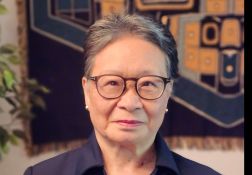
Dr. Bragg is a former Assistant Secretary-General for Humanitarian Affairs and Deputy Emergency Relief Coordinator in the United Nations (2008-2013). As the ASG, she was the deputy head of the Office for the Coordination of Humanitarian Affairs (UNOCHA). Prior to her secondment to the UN, she spent 24 years in the federal public service of Canada, in multiple departments. In 2004-2008, she headed the International Humanitarian Assistance, Peace and Security Program of the Canadian International Development Agency. As Canada’s senior official, she represented Canada on the Executive Committee and Executive Board of the UN High Commission for Refugees and the World Food Program.
Following her retirement from the UN, Dr. Bragg continues to contribute to humanitarian affairs and academic advancement through her participation globally in major national and multi-national humanitarian initiatives, governance and advisory bodies. From 2013 to 2023, she was Adjunct Full Professor in the Centre for Humanitarian Action, University College Dublin, Ireland, and is a frequently invited speaker in universities in Europe and Asia. Since 2024, she is Senior Fellow in Munk School of Global Affairs and Public Policy, University of Toronto.
Dr. Bragg received her degrees from University of Toronto (B.Sc. Psychology), University of Cambridge (M.Phil. Criminology) and the State University of New York at Albany (Ph.D. Criminal Justice).
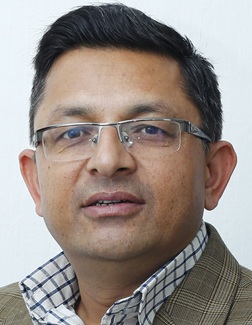
Nama is the inaugural Regional Director for Asia Pacific at Humanitarian OpenStreetMap Team (HOT). In this role, he leads a team to help nurture, support, and amplify open mapping works in 25 countries in the region. Nama has a unique blend of experience from government, non-profit, academia, and start-ups.
Nama founded and developed Kathmandu Living Labs (KLL) as one of the exemplary institutions working in the areas of open mapping, open data, and civic tech. Some of the works he successfully led at KLL have been covered in major news outlets, e.g. The New York Times, BBC, MyRepublica, GovInsider, theguardian, Setopati, Nepali Times. Before founding KLL, Nama led the World Bank’s Open Cities project in Nepal.
Nama earned his doctorate degree from the University of Illinois at Urbana-Champaign with a focus on OpenStreetMap. Following the doctoral degree, he worked at McGill University as a postdoctoral research fellow and then at Niti Foundation as the Director of Programs. Nama has authored over a dozen journal papers and book chapters. He has co-edited a book titled ‘Youth community Inquiry: New Media for Community and Personal Growth’.

Dr Alistair D. B. Cook is a Senior Fellow and Coordinator in the Humanitarian Assistance and Disaster Relief Programme within the Institute of Defence and Strategic Studies at the S. Rajaratnam School of International Studies (RSIS), Nanyang Technological University. His research interests focus geographically on the Asia-Pacific and Myanmar in particular and thematically on humanitarian assistance and disaster relief (HADR), foreign policy and regional cooperation. He has taught undergraduate, graduate and professional development courses at Purdue University, University of Melbourne, Deakin University, Nanyang Technological University, Australian National University, Singapore Civil Defence Academy and SAFTI.
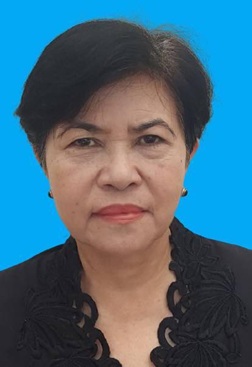
Dewi Fortuna Anwar is a Research Professor at the Research Center for Politics, National Research and Innovation Agency (PRP-BRIN), an Academician of the Social Science Commission of the Indonesian Academy of Sciences (KIS-AIPI), Chairman of the Board of Directors of The Habibie Center (THC) and Co-Founder of the Foreign Policy Community of Indonesia (FPCI). In 2001-2010 she was Deputy for Social Sciences and Humanities, Indonesian Institute of Sciences (IPSK-LIPI). In 2010-2017 Dewi was Deputy Secretary for Political Affairs to the Vice President of the Republic of Indonesia. Dewi is the 8th Pok Rafeah Chairholder at IKMAS UKM in 2025; a Distinguished Visiting Professor at the S. Rajaratnam School of International Studies (RSIS), NTU, Singapore in 2017-2018; a Distinguished Visiting Professor at SAIS, Johns Hopkins University in 2007. She has written widely on Indonesia’s foreign policy, and ASEAN regional political and security issues. Dewi sits and has sat in a number of national and international advisory boards i.e. Centre for Humanitarian Dialogue (HD) since 2019, Stockholm International Peace Research Institute (SIPRI) in 2010-2020, and the UN Secretary General Advisory Board on Disarmament Matters in 2008-2012. She obtained her PhD from Monash University, Melbourne, while her M.A. and B.A. (Hons) were from SOAS, University of London.
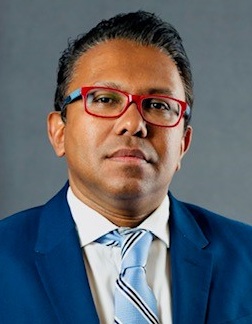
Devanand Ramiah (Dev) is a seasoned humanitarian, peacebuilding and development practitioner with over 20 years of experience. He currently serves as the Director of Crisis Readiness, Response, and Recovery in the Crisis Bureau of the United Nations Development Programme (UNDP). Before assuming this role, he was the Chief of Staff for the Global Policy Network in New York, acting as the principal advisor to the Directors of UNDP’s Bureau for Policy and Programme Support and Crisis Bureau.
During his tenure at UNDP, Dev has held several leadership positions, including Team Leader for Asia and the Pacific and Peacebuilding and Recovery Advisor in the Bureau for Crisis Prevention and Recovery. He has served as a Peace and Development Advisor in Sri Lanka and in country leadership roles such as Resident Representative a.i. for UNDP Maldives and Deputy Resident Representative for UNDP China, where he advanced work on climate change and SDG financing.
Before joining UNDP, Dev worked with the United Nations Mission in East Timor and the United Nations Interim Administration Mission in Kosovo. He began his career as a senior researcher at the Centre for Policy Alternatives in Sri Lanka and consulted for various think tanks on crisis response, governance, and peacebuilding.
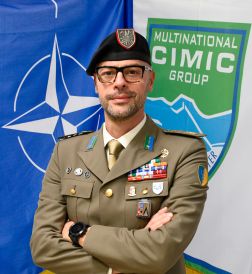
Colonel Piero Furlan assumed duties as Multinational CIMIC Group Commander, the 25th October 2024. Previously served as the Deputy Assistant Chief of Staff for Plans (DACOS J5) of the NATO Rapid Deployable Corps – Italy (NRDC-ITA). During his carrier he was Plans Chief at the 132nd Armored Brigade “Ariete”. He was posted several times in NATO Resolute Support Mission in Afghanistan.
He commanded the 1st Battalion at the 85th Training Regiment, the CIMIC Battalion at the Multinational CIMIC Group, several mountain artillery batteries, the Cadets Platoon at the Teuliè Military School and several mountain artillery platoons, either in homeland operations or in Afghanistan in the NATO ISAF mission framework.
Additionally, he served as J9 plans Staff Officer in NATO Resolute Support mission, CIMIC Unit Deputy Commander in UNIFIL in Naqoura, Lebanon and as Executive Officer of the Italian Provincial Reconstruction Team (PRT) in Herat, Afghanistan.
Colonel Furlan holds a master degree in International Studies from the Sapienza University within his Joint Staff College Graduation at the 19th ISSMI course attended at the Defense High Studies Centre and a master degree in International Humanitarian Law and Peacekeeping. He earned his Master of Arts (MA) degree in Strategic Science from Turin University in 2003, a MA in Political Science from Trieste University in 2006 and he graduated at the 138th Army Staff Officer Course in 2013.
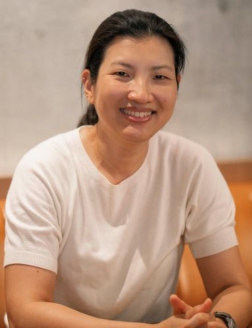
Lalita Hanwong is an assistant professor at History Department, Faculty of Social Sciences, Kasetsart University in Bangkok, Thailand. Her areas of academic interest include modern and contemporary history of Southeast Asia, with special emphasis on Myanmar. Apart of teaching mostly undergraduate courses on comparative Southeast Asian history, Dr. Lalita is also a columnist for Matichon Daily Newspaper. Her column, Thai Phob Phama (Thailand Meets Myanmar), is ambitious to bring Thai people closer to Myanmar society and its diverse culture. Since October 2023, Dr. Lalita has joined the Thai parliamentarian Committee of National Security, Border Affairs, National Strategy, and National Reform. Her experience with different security agencies in Thailand and especially along Thai-Myanmar border has brought her to be more curious about Myanmar and Thailand’s border security, and many more encounters and endless conversations with security forces. She decided to join The Border Consortium (TBC) because she finds issues regarding refugees in Thailand very challenging, and she hopes to play a role in improving the lives of refugees in Thailand.
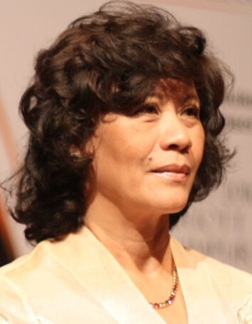
Noeleen Heyzer was an Under-Secretary-General of the United Nations and the highest ranking Singaporean in the United Nations (2007-2014). She was recently the United Nations Special Envoy to Myanmar from October 2021 until June 2023. During 2013 to 2015, she was the UNSG’s Special Adviser for Timor-Leste, working to support peace-building, state-building, and sustainable development.
She was the first woman to serve as the Executive Secretary of the UN Economic and Social Commission for Asia and the Pacific since its founding in 1947. Under her leadership (Aug 2007-Jan 2014), the commission focused on regional co-operation for a more resilient Asia-Pacific, founded on shared prosperity, social equity, and sustainable development. She was at the forefront of many innovations including for regional disaster preparedness, inclusive socio-economic policies, sustainable agriculture and urbanization, energy security and regional connectivity.
She was the first Executive Director from the south to lead the United Nations Development Fund for Women. She was widely recognized for the formulation and implementation of the landmark of Security Council Resolution 1325 on Women, Peace, and Security.
She holds a BA (Upper Hons) and a MSc from Singapore University, a PhD from Cambridge University, and has received numerous awards for leadership.
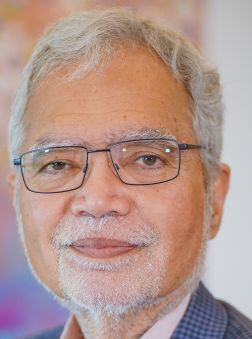
Mukesh Kapila, CBE is Professor Emeritus of Global Health and Humanitarian Affairs, University of Manchester; and Senior Adviser to the Parliamentary Assembly of the Mediterranean. His extensive career spanning emergency crises, humanitarian and health management and diplomacy has taken him to over 120 countries across all continents including the most complex disasters and wars. He has served in senior positions at the UK Foreign, Commonwealth and Development Office, United Nations, World Health Organization, International Federation of Red Cross and Red Crescent Societies, and advised many multilateral institutions including the World Bank, UN agencies, and NGOs including as member or chair of the boards of several.
Professor Kapila has qualifications in medicine, public health, and development from the Universities of Oxford and London. He is a public and media speaker and writer. His books include ‘Against A Tide Of Evil’ (2013) and ‘No Stranger to Kindness’ (2019). His many awards include a CBE from King Charles III, a Global Citizenship Award, the “I Witness!” award for human rights, and a special resolution of the California State Legislature for “lifetime achievements and meritorious service”.
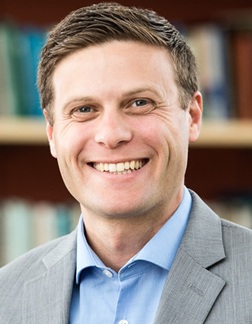
Dr Adam C. Levine is a Professor of Emergency Medicine and International and Public Affairs at Brown University. Dr Levine currently serves as the Associate Dean of Global Health Equity within the Brown University Division of Biology and Medicine. Dr Levine received his Medical Doctorate from the University of California, San Francisco and his Masters of Public Health from the University of California, Berkeley before completing specialty training in Emergency Medicine and Humanitarian Studies at Harvard University. He has previously led research and training initiatives in East and West Africa and South and South-East Asia. His federal and foundation-funded research focuses on improving emergency care in low resource settings and during public health emergencies, while his clinical work focuses on the care of unsheltered populations in Rhode Island.
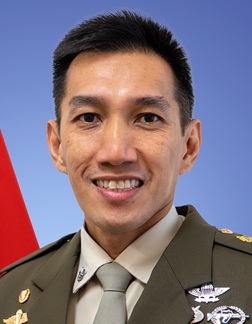
Col Lew Tze Soon is presently the Deputy Chief Guards Officer in the Guards Formation, Singapore Armed Forces (SAF). He is concurrently the Director of Changi Regional Humanitarian Assistance and Disaster Relief (HADR) Coordination Centre (Changi RHCC).
Enlisted into the SAF on 2 October 2001, Col Lew was commissioned as a sword of merit on 5 October 2002, and completed the Guards Officers Conversion Course in 2003. He has served in numerous command and staff appointments in the SAF over the last two decades.
Col Lew’s key command appointments included Commanding Officer, 3rd Battalion Singapore Guards, and Delta Wing Commander, Officer Cadet School (OCS). His staff appointments included Head Operations in 1st Battalion Singapore Guards, Head Plans in Headquarters Personnel Command (HQ PERSCOM), and Head SAF Manpower Operations in Joint Manpower Department (JMPD). Prior to his present appointment, Col Lew was the Chief of Staff in Headquarters Medical Command (HQ MC).
As Director RHCC, Col Lew looks forward to strengthen the regional and global HADR networks, as well as the disaster relief preparedness of the SAF with its partners.
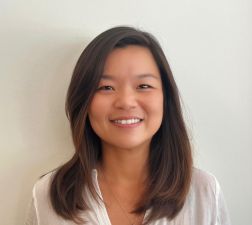
Lim Junli is a Research Fellow with the Humanitarian Assistance and Disaster Relief (HADR) programme, Institute of Defence and Strategic Studies (IDSS), at RSIS. She is an international lawyer focussed on issues of public international law including international humanitarian, refugee, and disaster law.
Junli has experience at international criminal tribunals, and has served as a consultant with a range of international institutions including the Judicial Integrity Group, Deutsche Gesellschaft für Internationale Zusammenarbeit (GIZ), Konrad Adenauer Stiftung, the European Institute of Peace, and the Women’s Initiative for Gender Justice. In 2021, she supported evacuation efforts from Afghanistan and was part of the team at Atlas Women to be awarded the PILnet Pro Bono Publico Award. Since 2023, she has been mentoring legal representatives for victims of conflict-related sexual violence in Ukraine.
Junli holds a BA (Hons.) in political science from the National University of Singapore and University of Melbourne. She graduated with a MA (Research) from the University of Melbourne and a Master of Laws (J.D.) from Monash University.
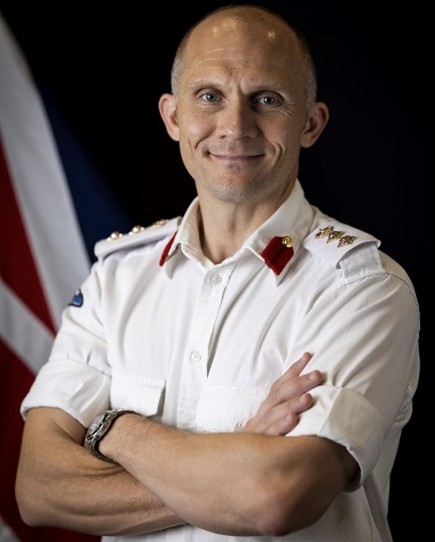
Eddie Maskell-Pedersen commissioned into the Royal Corps of Signals in 1999. His initial service included employment at Brigade and Corps level Headquarters, and appointments in Electronic Warfare and Electronic Counter Measures (Force Protection). During this period, he deployed to the Balkans, Northern Ireland, Iraq, Afghanistan and South Asia. On promotion to Major, he served as a capability sponsor with a portfolio including soldier systems, demolitions and the counter terrorist response, before embarking on a year operational deployment as the lead operational planner for a UK Task Force in Afghanistan; for which he was awarded The Queen’s Commendation for Valuable Service (QCVS).
He promoted to Lieutenant Colonel in 2015 and deployed to the Middle East to embed within Special Operations Joint Task Force – Operation Inherent Resolve as the J5 Deputy Director for which he was awarded his second QCVS. He subsequently established a Chief Information Officer position within a 2* Operational HQ, prior assuming Regimental Command in June 2018. He was successfully selected for promotion to Colonel and assignment as the Military Assistant to the Vice Chief of the Defence Staff in August 2020. In December 2022 he was assigned into the Army Headquarters as the Chief of Staff for the Army Chief Information Officer. In July 2023 he assumed the Head of the British Defence Staff for Southeast Asia.
He has completed two Masters Degrees (MSc Cranfield University and an MA Kings College London) and was accredited as a Chartered Engineer in 2022 by the Institution of Engineering and Technology (IET). Eddie achieved his Fellowship with the IET in 2023.
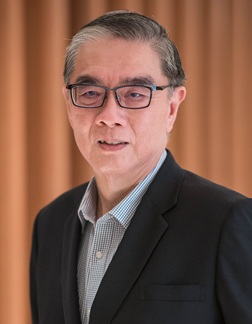
Ambassador Ong Keng Yong is Executive Deputy Chairman of the S. Rajaratnam School of International Studies (RSIS) at the Nanyang Technological University in Singapore. He is concurrently Director of the Institute of Defence and Strategic Studies (IDSS) and Head of International Centre for Political Violence and Terrorism Research (ICPVTR) at RSIS.
Mr Ong continues to hold the position of Ambassador-at-Large at the Singapore Ministry of Foreign Affairs. He is also Singapore’s Non-Resident Ambassador to Iran. Mr Ong chairs Humanity Matters, a non-profit humanitarian organisation focused on inter-faith understanding and volunteerism, and is based in Singapore.
Mr Ong was High Commissioner of Singapore to Malaysia from 2011 to 2014. He served as High Commissioner of Singapore to India and concurrently Singapore’s Ambassador to Nepal from 1996 to 1998.
Mr Ong served as the 11th Secretary-General of ASEAN (Association of Southeast Asian Nations), based in Jakarta, Indonesia, for 5 years from January 2003.
Mr Ong started his diplomatic career in 1979 and was posted to the Singapore Embassies in Saudi Arabia, Malaysia, and the United States of America between 1984 and 1994. From September 1998 to December 2002, he was Press Secretary to the then Prime Minister of Singapore, Mr Goh Chok Tong, while holding senior appointments in the Ministry of Information, Communications and the Arts, and the People’s Association in Singapore. From 2008 to 2011, he served as Director of the Institute of Policy Studies (IPS) in the Lee Kuan Yew School of Public Policy at the National University of Singapore. Mr Ong was the Chairman of the Singapore International Foundation (SIF) from 2015 to 2023.
Mr Ong graduated from the then University of Singapore with a LLB (Hons). He studied at Georgetown University in Washington D.C., USA, and graduated with a MA in Arab Studies.
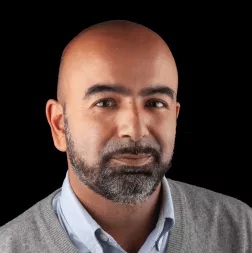
Pierre Prakash has been working in Asia for over 25 years. Trained as a journalist, he started his career as a foreign correspondent for French media in South Asia, covering India, Sri Lanka, Nepal, Bhutan and Bangladesh. He subsequently shifted to the aid sector, joining the European Union’s Humanitarian Aid department first in New Delhi covering South Asia, and then in Bangkok, covering the entire Asia Pacific region. Pierre joined International Crisis Group as Asia Program Deputy Director in 2019, before becoming Director in 2022.
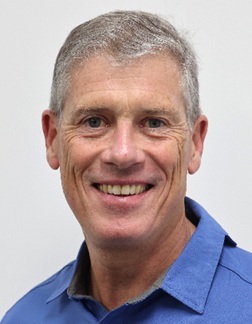
Dave Smith, AM, CSC, DSM served for over 34 years in the Australian Army, retiring at the rank of Brigadier. During his career he commanded at every level from platoon to brigade, and saw operational service in East Timor, Solomon Islands, and Afghanistan. He also held senior staff roles in strategy development and implementation, risk management and organisational renewal. After leaving full-time service, Dave founded a consultancy specialising in organisational coaching, leadership development, and governance, and served as a Director on the Boards of Disaster Relief Australia (DRA) and the Wodonga Institute of TAFE.
In July 2024, Dave was appointed Chief Executive Officer of Disaster Relief Australia. Since then, he has led the organisation through significant growth and transformation, including development and initial implementation of the DRA 2030 strategy, implementation of the third and final year of the Commonwealth Government funded Volunteer Uplift Program, development of the National Veteran Volunteer Program and two major national operations: Operation Trew in response to Cyclone Alfred,; and Operation Locke—DRA’s largest operation to date. Under his leadership, DRA is continuing its transformation into a national disaster management asset by strengthening its people, equipment, and technical capabilities to meet future challenges, while remaining veteran-led, volunteer-focused, and committed to building a resilient organisation that delivers maximum impact for communities across Australia.
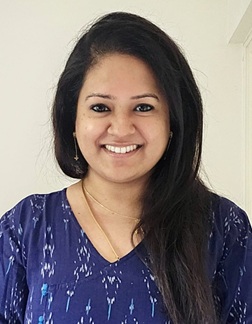
Swathi Thotta Nagesh oversees the end-to-end management of a 24/7 intelligence-driven security function that supports regional operations across APAC. Her core responsibilities span real-time incident response, cross-functional coordination, and delivering timely, actionable intelligence to stakeholders across Legal, Comms, Risk, and Operations. But beyond execution, she also focuses deeply on strategic planning, organisational design, vendor management, and aligning the RSC with global security objectives.
Over the past year, Swathi has led a transformation of the APAC Regional Security Center from a tactical monitoring unit into a proactive, structured, and scalable program. The team have built strong analyst pipelines, redefined roles and workflows, introduced cross-regional standardisation, and embedded long-term capability planning into their operating model. Swathi believes in security as a strategic business enabler, and that with the right team structure, data, and leadership, regional centers like theirs can shape better decisions, not just respond to them.
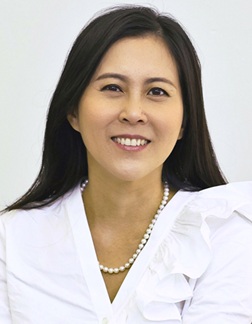
As the Founder and Chief Executive Officer of Space Faculty, Lynette Tan champions the Asia deep tech ecosystem, working through her organisation to cultivate talent and technology through experimentation, learning, and leadership. Space Faculty creates pathways to spark and nurture talent, turning passion into profession. It engages youth and young adults in deepening their knowledge of sectors such as space, robotics, and artificial intelligence (AI). Space Faculty serves as the national organiser of prestigious global events like the World Robot Olympiad® and the International Space Challenge. Additionally, the organisation created and annually hosts Expand Space, a premier global platform in Singapore each November, connecting youth with opportunities in deep tech and its future possibilities.
Lynette is a Karman Fellow, an international award recognising individuals for outstanding achievements in space. She also advises various international deep tech startups, including Myelin-H, a life sciences company based in London, UK, and Openstream.ai, a rapidly growing AI company in New Jersey, USA. Actively promoting interest in Science, Technology, Engineering, and Mathematics (STEM) among youth and women, Lynette’s contributions have earned her several accolades. Lynette also mentors young leaders through the Singapore Business Federation, Women in Aviation – Singapore, and the U.S. Embassy. She holds a Master of Science degree in Chemical Engineering from Stanford University.
Wu Ye-Min is Regional Director at the Centre for Humanitarian Dialogue, where she oversees a team of mediators based in the Asia-Pacific who work on reducing conflict, limiting human suffering and developing opportunities for peace.
She was a diplomat with the Ministry of Foreign Affairs, Singapore for 15+ years. While at the Permanent Mission of Singapore to the United Nations (UN) in New York, she chaired UN negotiations as well as represented the Group of 77 and China in UN negotiations on sustainable development issues. She was also Deputy Permanent Representative for Singapore to the World Trade Organisation and World Intellectual Property Organisation in Geneva.
Ye-Min co-founded Negotiation Resolution, which trains negotiators to speak for a better world by balancing interests and global responsibility. She conducts workshops and lectures around the world on negotiation and leadership in diplomacy.
She co-authored “Negotiating at the United Nations: A Practitioner’s Guide” (Routledge), which is used as teaching material in various institutions. Her work has been featured in podcasts and publications, including “The Voices of War” podcast and South China Morning Post.
Registration
Welcome Remarks

Colonel Lew Tze Soon
Deputy Chief Guards Officer, Guards Formation, Singapore Armed Forces; Director, Changi Regional HADR Coordination Centre (RHCC), Singapore
Download Transcript
Keynote Address

Dr Alistair D. B. Cook
Coordinator of the Humanitarian Assistance and Disaster Relief Programme and Senior Fellow, Institute of Defence and Strategic Studies, S. Rajaratnam School of International Studies, Singapore
Dr Noeleen Heyzer
Former United Nations Under-Secretary General
Download Transcript
Break
Panel Session 1: The Future of Digital Humanitarianism: Balancing Impact, Sustainability, and Resilience

Ms Wu Ye-Min
Director – Asia-Pacific, Centre for Humanitarian Dialogue
Mr Devanand Ramiah
Director of Crisis Readiness, Response and Recovery, United Nations Development Programme
Ms Lynette Tan
Chief Executive Officer and Chairwoman, Space Faculty Private Limited
Mr Nama Raj Budhathoki
Regional Director, Open Mapping Hub – Asia-Pacific Hub
Ms Swathi T Nagesh
Global Security Lead – APAC, Uber
Download Transcript
Lunch
Panel Session 2: Dilemmas and Trends in the Emerging Humanitarian Landscape

Ms Lim Junli
Research Fellow, HADR Programme, IDSS, S. Rajaratnam School of International Studies, Singapore
Professor Dewi Fortuna Anwar
Research Professor, Research Center for Politics, National Research and Innovation Agency (BRIN), Indonesia
Dr Mukesh Kapila, CBE
Former Under Secretary General, International Federation of Red Cross and Crescent Societies
Colonel Arai Nobuhiro
Chief, Planning Sec., Defense Cooperation & Policy Center, Policy & Programs Division, Policy & Programs Department, Ground Staff Office, Japan Self-Defence Force, Japan
Mr Pierre Prakash
Program Director (Asia), International Crisis Group
Download Transcript
Break
Panel Session 3: Frontiers in Civil-Military Partnerships in Disasters

Dr Catherine Bragg
Senior Fellow, Munk School of Global Affairs & Public Policy, University of Toronto, Canada
Dr Adam C. Levine
Associate Dean of Global Health Equity in the Division of Biology and Medicine, Brown University, United States of America
Mr David Smith AM, CSC, DSM
Chief Executive Officer, Disaster Relief Australia
Dr Lalita H. Hanwong
Lecturer, Department of History, Faculty of Social Sciences, Kasetsart University, Thailand
Colonel Piero Furlan,
Commander, Multinational CIMIC Group, NATO
Colonel Eddie Maskell-Pedersen,
Head, British Defence Staff, Southeast Asia
Download Transcript
Closing Remarks

Ambassador Ong Keng Yong
Executive Deputy Chairman
S. Rajaratnam School of International Studies
Download Transcript
Cocktail Reception
Dinner (invited guests only)
Hosted by Ambassador Ong Keng Yong
Executive Deputy Chairman
S. Rajaratnam School of International Studies



